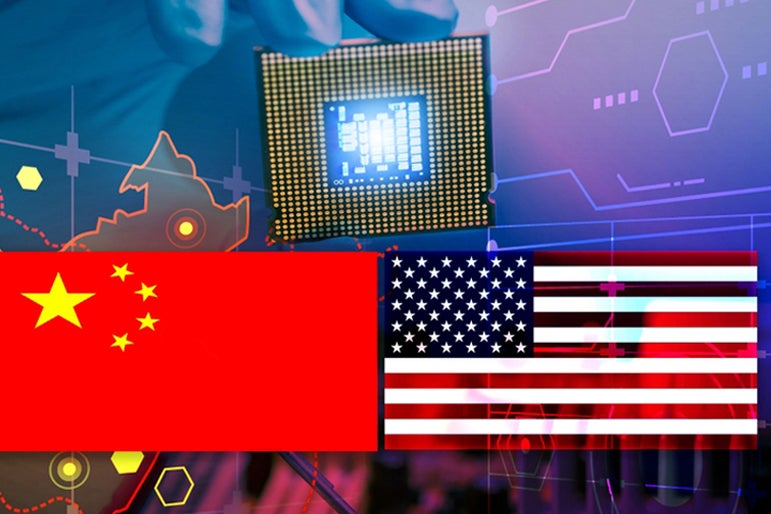As the US-China chip dispute escalates, an expert has warned that Washington would need at least a decade of export curbs to grow the lead over Beijing in the semiconductor space.
What Happened: The Biden administration, in October, unveiled sweeping export controls on chips, a comprehensive strategy to move the U.S. forward and hold China back in the production of advanced semiconductors.
However, analysts believe Washington’s strategy may not work in “the short run.”
See Also: Global Semiconductor Race Is Turning Into a War
“But I think the question is not really about the short run, but it’s about a 10-year time horizon,” Christopher Miller, an associate professor of international history at Tufts University and the author of “Chip War: The Fight for the World’s Most Critical Technology,” told Nikkei Asia.
“Over the next 10 years, if the export controls are effective, the gap between what the U.S. and allies can do and what China can do will grow,” Miller said.
He believes that in terms of the chips the U.S. has access to, “more law will keep pushing at it,” and China won’t be able to “access comparable chips.”
Meanwhile, Xi Jinping‘s government launched a trade dispute at the World Trade Organization against the U.S. over its chip export control measures, which, it claims, have “threatened the stability of the global industrial supply chains.”
China is also mulling a one trillion yuan ($143 billion) support package for its semiconductor industry and could introduce it as soon as the first quarter of next year in a major step towards self-sufficiency in chips.
Check out more of Benzinga’s Europe and Asia coverage by following this link.
Image and article originally from www.benzinga.com. Read the original article here.

